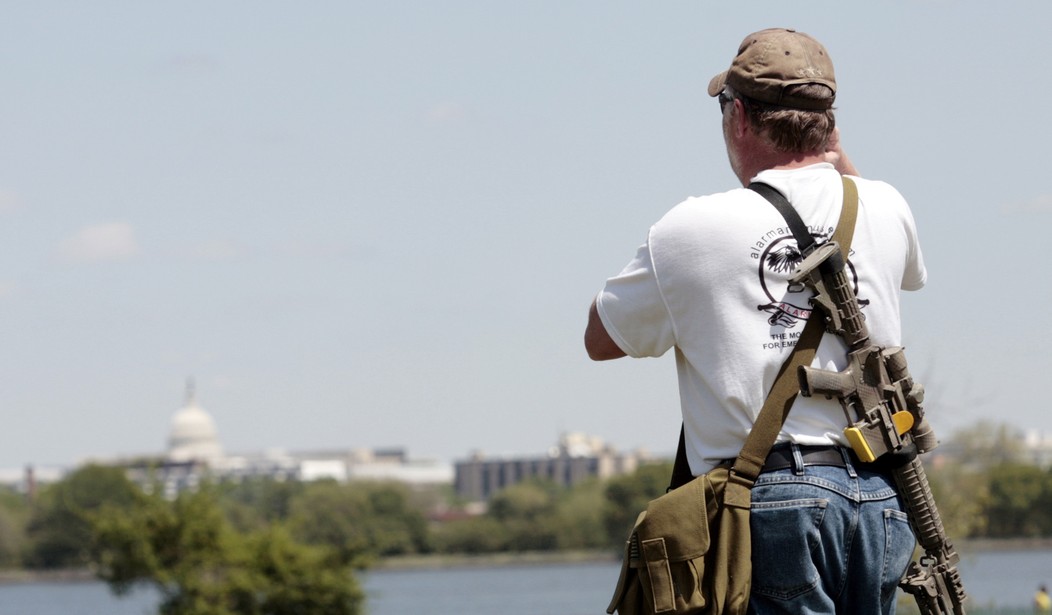Your average gun rights advocate also tends to be a fan of the Constitution. Most of us recognize that you cannot protect one constitutional right unless you’re willing to stand up for other constitutional rights–meaning, rights guaranteed by the Constitution, not right supposedly granted by it.
But the Tenth Amendment is a unique case. While it does still apply, it’s long been rendered irrelevant by decades upon decades of federal law and legal precedent in many ways.
Yet it’s hilarious to see an anti-gun argument hinge on just that amendment.
In its 2008 decision in District of Columbia v. Heller, the court ruled that the Second Amendment grants individuals a right to bear arms. We are law professors with expertise in United States, comparative constitutional and international law. Although we think Heller was wrongly decided regarding federal regulation, we focus here on the court’s 2010 decision in McDonald v. City of Chicago regarding state and local regulation.
…
While Heller was based on the Second Amendment, McDonald was based on the 14th. Under the due process clause of the 14th Amendment, the Supreme Court consistently held — in that series of decisions between 1925 and 1971 — that only “fundamental” rights included in the Bill of Rights bind the states. The critical question is: Which rights are fundamental?
Before the court’s 2010 decision in McDonald, settled constitutional law established that the Second Amendment right to bear arms was not a “fundamental” right and therefore the Second Amendment did not impose constitutional constraints on state and local governments. McDonald rejected two centuries of consistent precedent by holding that the Second Amendment imposes legally binding limits on state governments.
Basically, they’re making the case that the Tenth Amendment means states should be able to heavily restrict guns as much as they want.
They’re almost adorable when they pretend they understand the Constitution.
It should be noted that this was written by a law professor at UC Irvine, which should also tell you a great deal about the current state of law schools.
First, let’s address the idiotic idea that the right to bear arms isn’t a fundamental right.
The text of the Second Amendment states, “A well-regulated militia being necessary to the security of a free state, the people’s right to keep and bear arms shall not be infringed.”
The people’s.
A look at the rest of the Constitution finds the term “the people” pop up with some regularity. In every single instance it does, it’s found to apply to the individual people who make up the population of the United States. The right of the people to peaceably assemble doesn’t apply to the states, but to the people themselves. The right “of the people to be secure their persons, houses, papers, and effects, against unreasonable searches and seizures” only applies to the people, not to the states.
In literally no other instance has anyone tried to make the claim that “the people” means anything other than the people themselves, as opposed to the state, the government, or any other entity.
As such, McDonald was found quite correctly.
Further, as such, the Tenth Amendment has absolutely no bearing on the issue. In fact, the Tenth Amendment is far more suggestive against such a measure. The text of that amendment reads:
The powers not delegated to the United States by the Constitution, nor prohibited by it to the States, are reserved to the States respectively, or to the people.
In other words, it makes it rather clear that powers are dispersed between the states and the people themselves. The question then becomes, just where do we draw the line?
Yet the fact that this amendment specifies the states tells us something interesting, namely that the Founding Fathers didn’t see the states and the people as interchangeable terms. Had the Second Amendment been about state militias, it’s entirely likely the Founders would have said so.
They didn’t.
What’s hilarious to me is that folks like this are making this fuss, but I suspect are outraged over the upcoming Supreme Court decision kicking the abortion question back to the states. Why is the Tenth Amendment a viable argument for restricting a right the Constitution specifically says shall not be infringed, but not a supposed right not enumerated literally anywhere?
Fascinating, really.
But back to the gun question, it seems rather obvious that the Second Amendment was a fundamental right when the Bill of Rights was ratified and should have been considered a fundamental right all along.
However, I’d like to thank the professor for at least tacitly admitting he believes the Second Amendment is a second-class right. It’s kind of refreshing, if more than a little tyrannical.








Join the conversation as a VIP Member